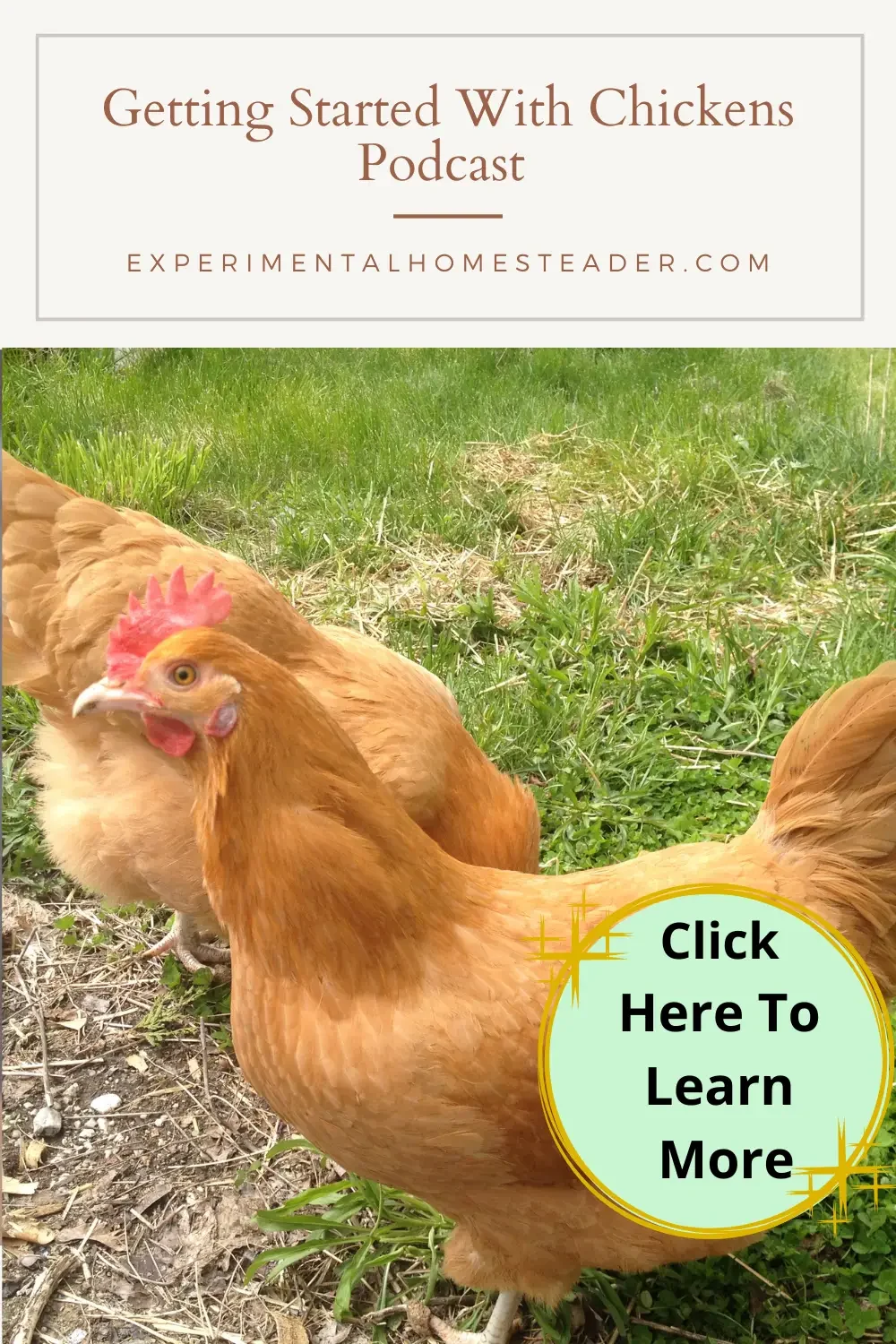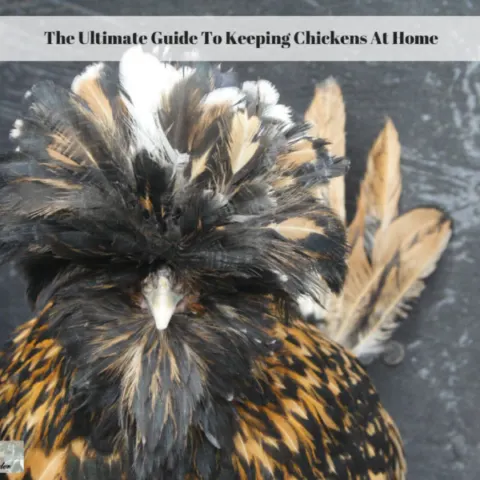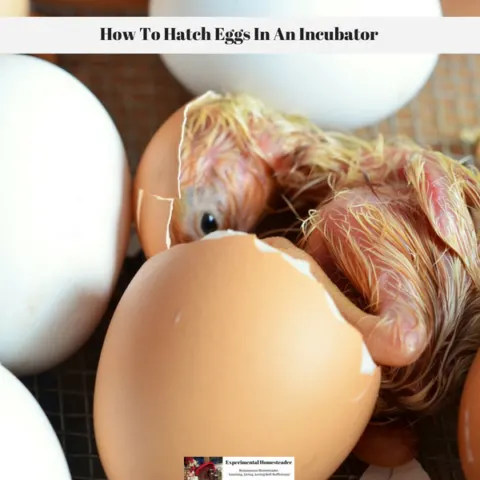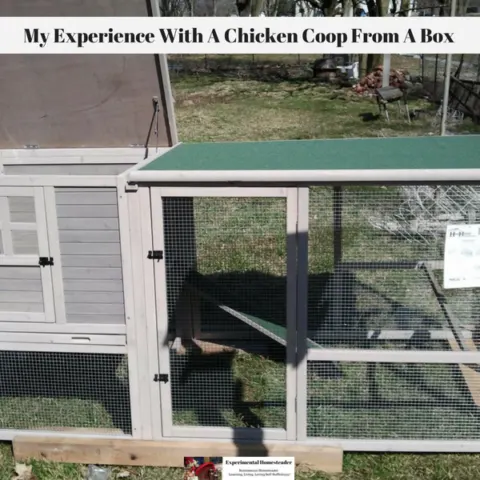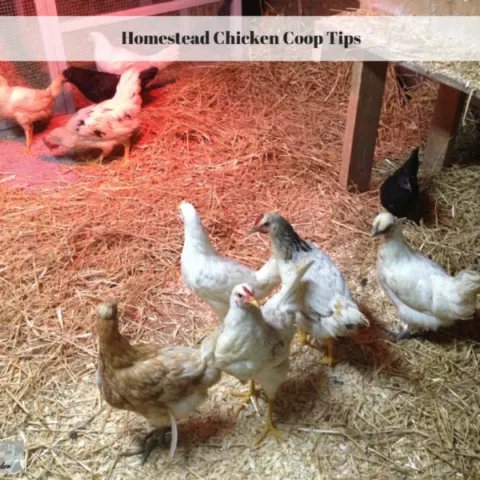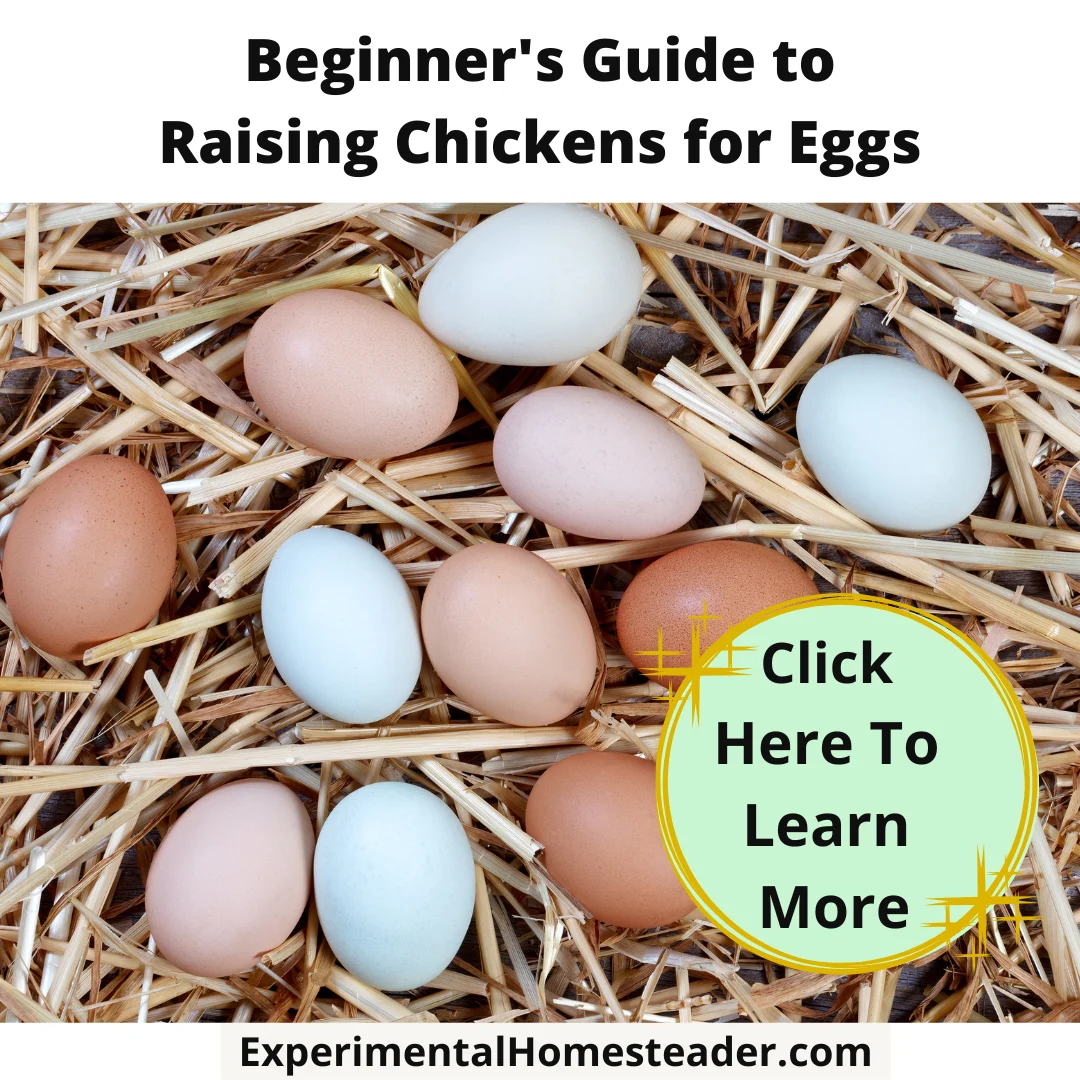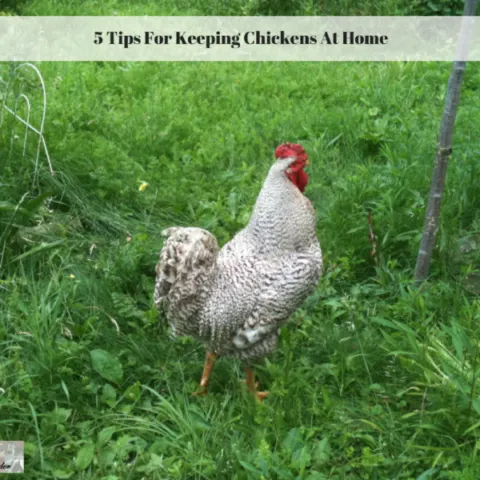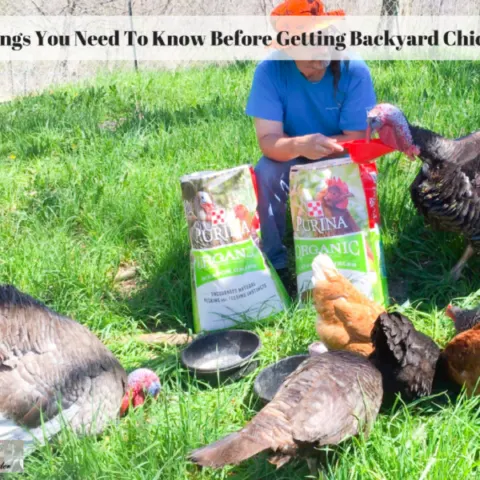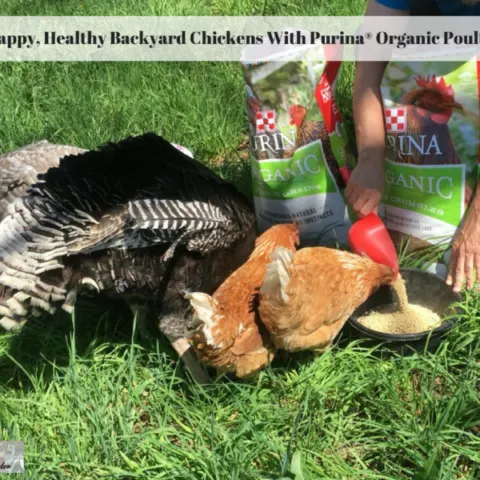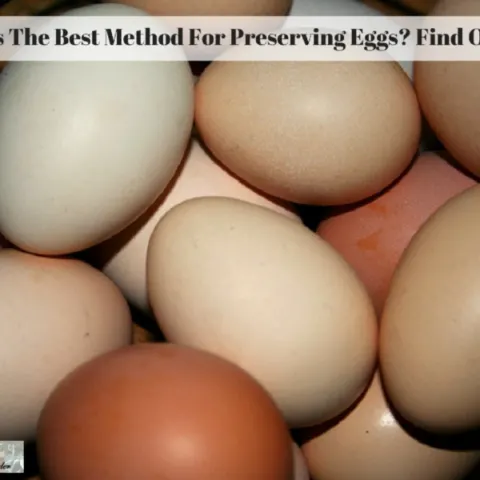
Welcome to today's podcast episode, Getting Started With Chickens.
One of the easiest animals to start raising on the homestead is chickens.
In this episode we will explore the advantages of raising chickens, problems that can arise from raising chickens and how to keep your chickens healthy.
📍 Good afternoon. I'm Sheri Ann Richerson and today's show is called. Getting started with chickens. Chickens are one of the easiest animals to start raising on the homestead. In this episode, we're going to explore the advantages of raising chicken and problems that can arise from raising chickens and how to keep your chickens healthy.
📍 With all of the recent chickens that have started being allowed to be raised in the city, there are a lot more concerns about raising these animals and if they're really safe to have, and they are perfectly safe to have. Roosters can be a little bit dangerous because of their spurs, but normally they will not bother you unless they feel threatened.
📍 Those spurs can feel pretty bad when they go into your leg. But hens are very nice animals. You can pick them up a lot of times they will fly up on your shoulder when you see them. They are just really, really easy to care for. The first thing you need to have is a secure chicken coop. When I say secure, I mean one that has doors and will close up at night.
📍 This is so that predators such as raccoons, can't get into the chicken coop. Or if you live in the city, your dog or a neighbor's dog. Some dogs don't mind chickens, other dogs will go after them and think they are some kind of toy and ended up killing them. So you gotta make sure your chicken coop is secure.
📍 You want to make sure that your hes have nest boxes to lay in. It is true that they will lay on the floor of the chicken coop, but they really prefer to be up high. You can even hang the nest boxes halfway up the wall towards the ceiling of your chicken coop.
📍 Just make sure that you can reach the nest boxes because you really don't want to use a ladder every time you have to reach in to get the egg. Speaking of eggs, a lot of hens will go broody. They will lay the eggs and make a nest and they're not going to want you to take those eggs away from them.
📍 As a matter of fact, they might even try to peck you when you go in to get those eggs. There are several ways to deal with this. One thing that you could do is just allow them to have to hatch a set of chicks at the beginning of the year. Then you can either allow them to raise the baby chicks if you have a safe enough place or you can take the baby chicks away and raise them yourself or sell them if you don't want them raising their own little chicks or hatching chicks. Then you can wear gloves and just reach in and make sure the gloves are thick enough so that when the chickens peck that they can't actually pierce your skin.
📍 After a while, they will give up trying to set on all the eggs and go on about their chicken business. There are problems that can arise from raising chickens, and most of these problems have to do with either the noise that roosters make if you're in town or close enough to town, you may not be allowed to have a rooster just because they do crow early in the morning.
📍 They typically don't crow at night, but they crow on and off all day long. So there may be regulations that prohibit you from having an animal that makes a lot of noise like that. As I said earlier roosters do have spurs other legs. I have heard of some people cutting the spurs off.
📍 I have never done that because I feel like they need to have that to protect themselves their hens, although I am on a two and a half acre farm, so we do have cats that, you know, come in the yard once in a while, and we've had groundhogs and I have seen the rooster jump on the groundhogs back and spur it, chasing it off.
📍 Of course we have raccoons and they're one of the biggest problems that you're going to have if you're in an area where they are, because if you don't lock your chicken coop up, because they have fingers, they can open up a door and they can go into the chicken coop. They can dig and go under the chicken coop of if you have a dirt floor in your chicken coop and racoons will kill your chickens.
📍 The way you will know if they have killed your chicken is you're going to see part of a carcass that's been partially ate, laying out there, your yard. The best way to deal with raccoons is to trap them. Sometimes there are places, animal rescue places, that will come and take the raccoons away one you trap them. Sometimes there are trappers in your area that you can call.
📍 Every once in a while, there are animal control units that will deal with these critters, but not very often because they usually deal more with domestic animals. Other problems that can arise for grazing chickens is if you're in a cold area, you need to make sure that chicken coop is warm enough in the winter that they can survive.
📍 You need to put some straw on the floor in there and there plenty of straw in their nest boxes and give them a place up high by the ceiling so they can roost because chickens really like to fly up high. They like to roost. Other problems that can arise is mites. The absolute easiest way to keep your chickens healthy and happy is to use diatomaceous earth on the floor of your chicken coop.
📍 Put it in their nest boxes. You can mix it in with dirt or sand and give them a place that they can get in and dust themselves. Another way is kelp and that will give them all of the minerals that they need. Studies have showed that kelp can actually help produce parasite levels, just like diatomaceous earth.
📍 So don't be afraid to put either of these two products in the chicken feed as well, or leave it for free choice and they will take what they want. Keeping your chicken coop clean is really important. Check the nest boxes. You don't have to clean them out every day, but keep an eye on them. When they start looking like the straw is starting to break up a little bit, or it's looking a little bit dirty in there.
📍 Go ahead and clean that nest box out and put some fresh straw in for them. As far as the chicken coop floor, I like to go in and use the pitchfork, or sometimes if it's not a big enough area, I will use two cat litter scoops and remove any of the poultry droppings or any areas of the straw that are starting to look a little bit worn.
📍 Straw is not really expensive. I really like it. Although I have used the Cedar shavings. and those have been okay, but I still like straw better. If you have a neighbor or, you know somebody that grows wheat, you can ask them if you can have the straw off of their fields, if they don't already bale it and sell it as straw.
📍 The really nice thing about that is the little wheat seeds, the chickens like to peck through and eat that. So, another thing you want to give your chickens a place of the shade that they can get out of the sun because chickens can overheat.
📍 I think just basically, if you keep your chickens clean, you know, give them a place where they can go eat grass and bugs, because chickens really need to eat fresh grass and they are so great at keeping your homestead free of mosquitoes, free of Japanese beetles.
📍 They'll eat them. Not only do they eat the grubs, but they'll eat the actual beetles once they have. They eat ants. They eat almost anything that moves. You need to make sure that you give your chickens fresh water, but not cold water. A good thing to do is to fill up several gallon jugs, depending on how many chickens you have and let those gallon jugs set overnight,
📍 so they're at room temperature and room temperature water is ideal for chickens. As I said earlier, chickens will overheat and they will die. Chickens do not have lungs the way most animals do. So it is really easy for this to happen. If it is real hot, it's even a good idea to have a shaded area outside, maybe coming off of one side of your chicken coop,
📍 so you can stop your chickens from being able to go out into the sunnier areas of the yard. Be sure to give your chickens lots of fresh scraps of vegetables and fruits. They love fruits. Oranges, watermelons, the ends off of green beans, pieces of corn on the cob that you have left over. All of these things are really good supplements to add to the chicken's diet.
📍 Little pieces of bread are okay. Sometimes if you live in an area with a day old bread store, you can go and get the bread, and freeze it. Take just a little bit out at a time to give to your chickens as a treat. Another thing that a lot of people don't do, but it is possible to do, chickens are easy to train.
📍 You can train them to do tricks. You can train them to come to you when they see you by always offering a little treat when they come. They are really responsive animals. As I said earlier, too, they like to fly up on your shoulders and sit there and don't be afraid of lice, because here's how you deal with that first, the diatomaceous earth and it's going to kill it.
📍 But if you're still worried about it, give your hair, a rinse with just plain white vinegar after you wash it. It's not going to stink, but the vinegar will burn any possible lice that could have got in your hair and it's going to solve the problem. Another thing, if you like to bring your chickens in the house and some people do believe it or not, you can make a chicken diaper.
📍 You're going to have to go online to look up the pattern for that, but you can literally put a diaper on your chicken and it can follow you around inside just like a dog if you want. I don't recommend this because chickens really do do better outside, but sometimes you may have a chicken that injured itself and you may need to keep a closer eye on the chicken and keeping them in a cage is not very ideal.
📍 They just really don't like being kept in a cage. They don't have a chance to exercise their legs and they really need to do that. So a chicken diaper is a good alternative in this situation. Make sure that the areas where they are fenced in, if you really want to keep them enclosed, are secure at the bottom
📍 so they can't dig their way out. Metal conduit is fairly cheap and easy to attach even to the bottom of chicken wire and they're unable to move it. The other thing is to make sure that there is a roof over the top of your chicken fence or they're going to fly out. I have literally seen chickens fly up so high on a fence, flap their wings and climb the rest of the way over.
📍 I have seen my chickens go over a six foot fence. So for the top, you can use deer netting. If you want, you can use hardware cloth, you can use chicken wire, just anything that goes from side to side of your fence. That will stop them from being able to just go over the top.
📍 Another thing about chickens is, you know, they are, really great pets. But if you're going to raise chickens, you need to think about what kind of chickens do you want? Because a lot of times different breeds of chickens will not live together. Larger chickens tend to pick all the smaller breeds.
📍 So if you're going to go with a small breed, you need to do that. If you're going to go with the larger breed that you want for say, meat, then kind of stick with those, and you can mix and match chickens within that size group. But do try to stay, you know, with one size of chicken. A lot of people like to raise, show chickens such as the silky.
📍 If you're going to have show chickens, they really are a different animal, then say your Rhode Island Reds. So again, you're not going to want to really mix these in the same cage. If you're going to have different types of chickens than having several different coops with several small, fenced in areas is really a good idea.
📍 That way you can keep the breeds separate, you can keep them pure, and you're not going to have the fighting going on. Speaking of fighting, yes, roosters will fight, even if they're raised together as young babies. As they get older, it's just a natural process. That's going to happen. There's going to be fights.
📍 You can step in and break it up. But that doesn't mean as soon as you turn your back, they're not going to go right back to. So I think it's really important that you understand that this is a natural process and the best thing to do, if you see two chickens fighting or two roosters fighting is to either butcher one and put it in your freezer for meat, or get rid of one of them,
📍 because if you don't, you are going to go out there one day and you are going to have a dead chicken or rooster. Usually hens do not fight. Every once in a while they might have a squabble, but they don't go at it near the way roosters do. Cats, as I had mentioned earlier are generally not a problem because the chickens and the roosters especially will chase them away.
📍 But if you have young baby chicks, cats will go after baby chicks and a baby chick can not defend itself. Sometimes a mother hen cannot defend the baby chicks against a cat because there's so many baby chicks. So if cats are a problem in your area, you may want to take those babies and raise them yourself and keep them confined where the cats can't get to them until they are large enough to defend themselves.
📍 So. I think that's really, you know, that's the ins and outs of raising chickens. Like I said, they are really easy animals to raise and I highly encourage you to do it. I encourage you to raise your chickens organically because you will be happier in the end. They really don't need the growth hormones.
📍 They're going to grow fine on their own. The only advantages at all is if you want to hurry up and rush them along so you can butcher them, but there are Cornish cross hens that are ready in six weeks or less to butcher. So I suggest if that's your goal that you go ahead and raise them organically and choose a breed of chicken that is fast-growing instead of using the growth hormone.
📍 There is nothing like a fresh chicken. Until you've raised your own, butchered it yourself and ate it. It doesn't taste anything like that store-bought chicken. Let me tell you, and, so again, I thank you for listening in today. I was your host Sheri Ann Richerson, and I do invite you to visit my website experimentalhomesteader.com
Be sure to look for the Experimental Homesteader Podcast on Apple Podcasts and also Amazon Music - and be sure to follow so you don't miss an episode!

Raising Chickens
The Ultimate Guide To Keeping Chickens At Home
Keeping chickens at home is enjoyable. Learn what you need to know to start raising free range chickens in your own backyard.
How To Hatch Eggs In An Incubator
Hatching eggs in an incubator is a fun and educational experience. Learn step by step how to hatch eggs in an incubator in this article.
My Experience With A Chicken Coop From A Box
A pre-made chicken coop from a box is an easy way to setup a first time chicken coop, but it needs to be made secure to keep your chickens safe.
Homestead Chicken Coop Tips
Check out these basic chicken coop ideas to help you get your homestead chicken coop set up right the first time and keep your chickens safe.
Beginner's Guide to Raising Chickens for Eggs
Embark on the rewarding journey of raising chickens for fresh eggs! Discover various chicken breeds and create a safe haven for your flock.
5 Tips For Keeping Chickens At Home
Keeping chickens at home is very popular. It is a good idea to learn how to start raising chickens before you own baby chicks or full grown chickens.
6 Things You Need To Know Before Raising Backyard Chickens
Raising backyard chickens is enjoyable. Learn what you need to know about caring for chickens before you begin raising chickens in your backyard.
Raise Happy, Healthy Backyard Chickens With Purina® Organic Poultry Feed
Raising chickens in your backyard is fun plus you get fresh eggs. When it comes to feeding backyard chickens I believe organic feed is best.
Getting Started With Chickens
In this episode we'll explore advantages of raising chickens, problems that arise from raising chickens and how to keep your chickens healthy.
What Is The Best Method For Preserving Eggs? Find Out Now
Hatching eggs in an incubator is a fun and educational experience. Learn step by step how to hatch eggs in an incubator in this article.
Backyard Chicken Keeping Printable – Chicken Record Keeping Digital Download – Backyard Chickens Record Book
Introducing the Backyard Chicken Keeping Printable: Your Ultimate Companion for Effortless Chicken Raising!
Are you considering the exciting adventure of raising backyard chickens? Or perhaps you’re already a seasoned chicken keeper looking to enhance your flock management? Look no further! Our Backyard Chicken Keeping Printable is the essential tool you’ve been waiting for.

